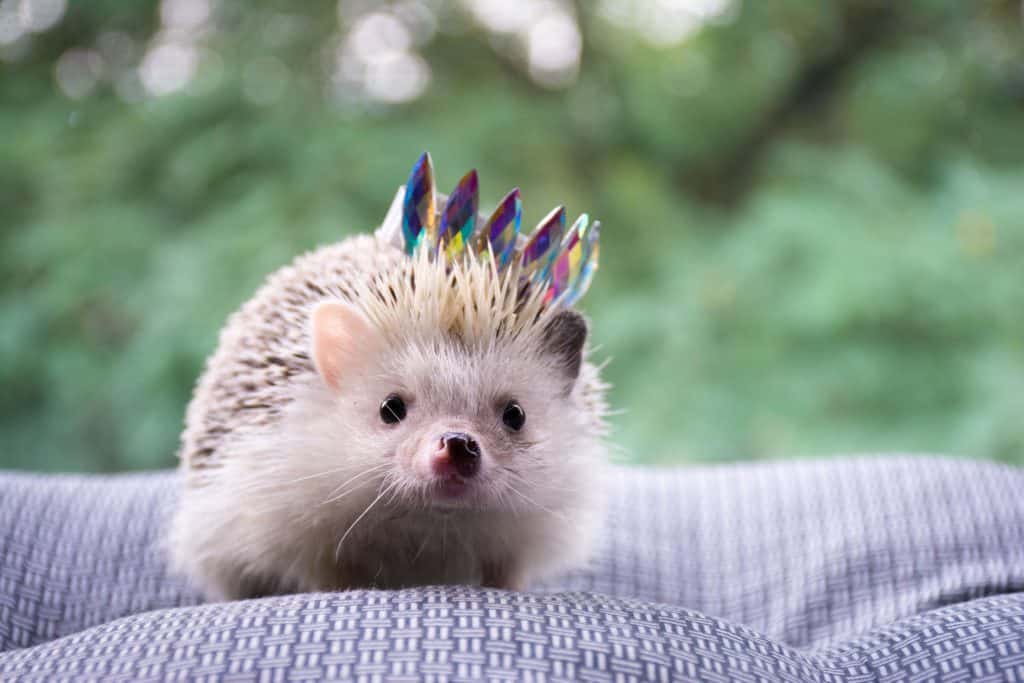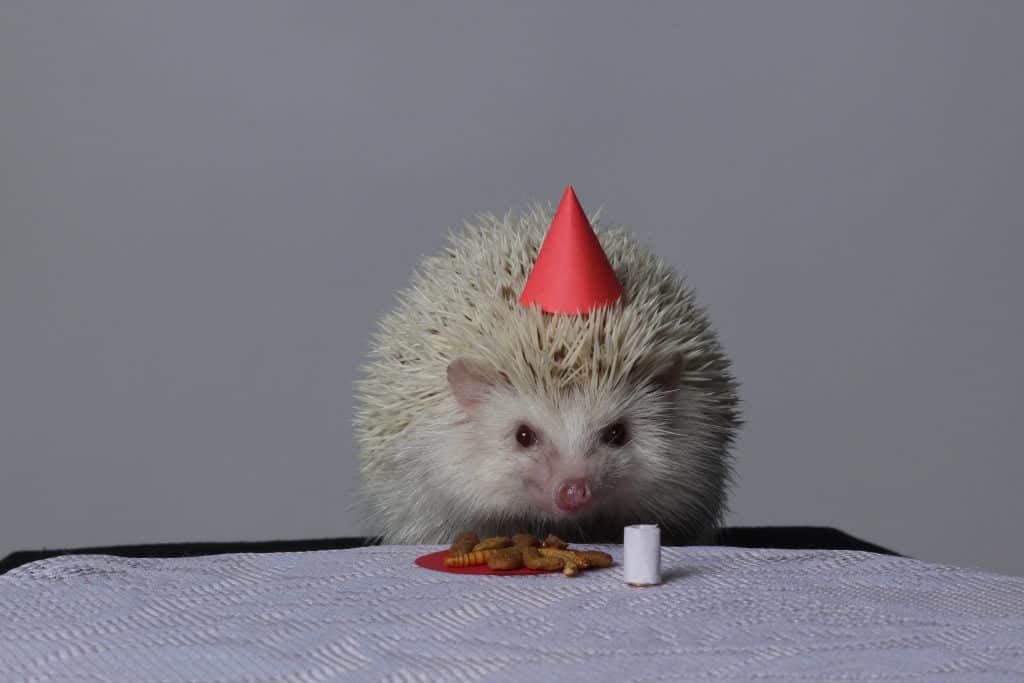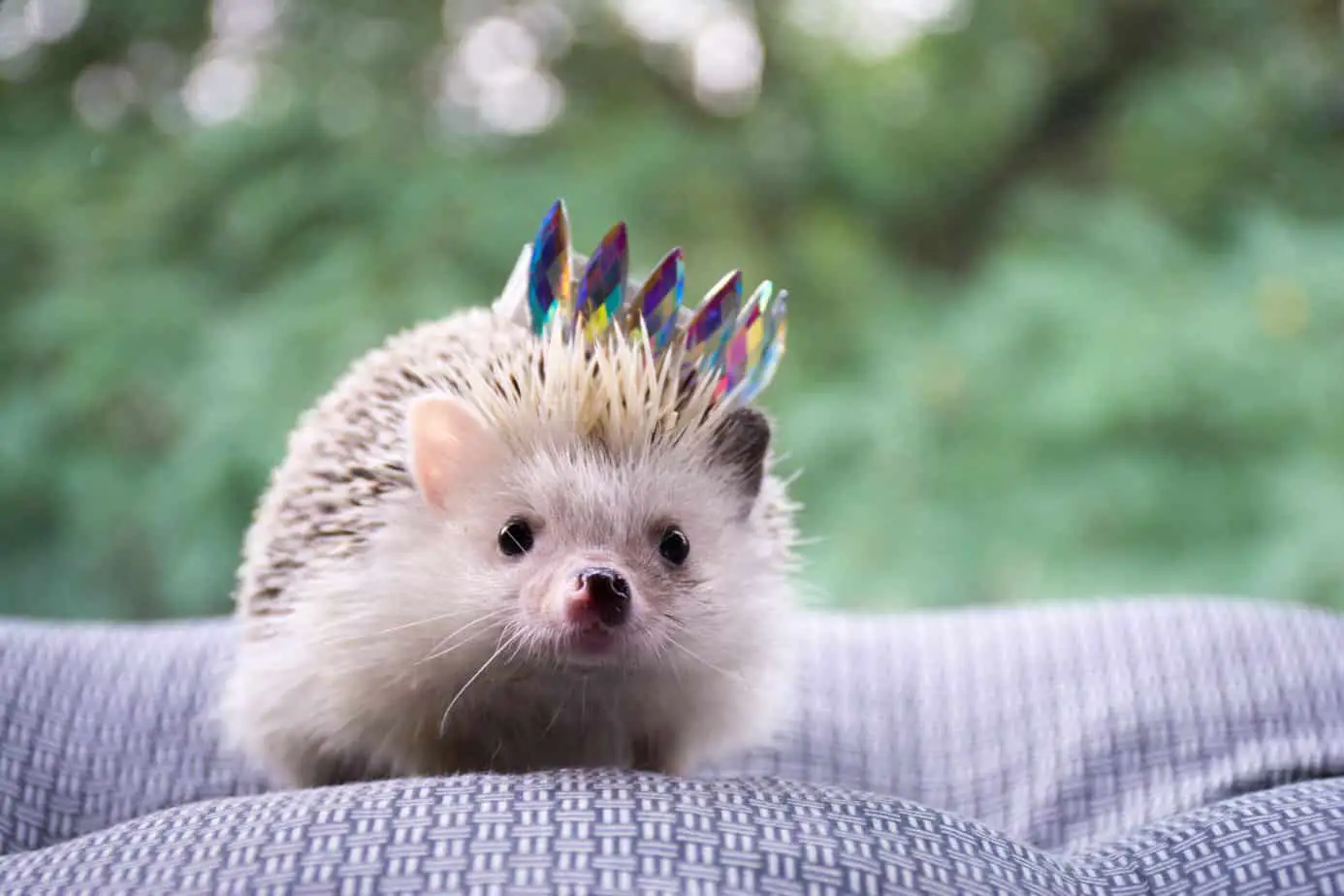Hedgehogs are fantastic little creatures. Not only are they adorable, but they’re also good companions in our everyday life. Though, their caretaking remains a little bit more complicated than your typical cat or dog. If you’re considering getting one of these animals, or already have one, then you’re probably wondering what to feed hedgehogs.
In this guide to learning what to feed hedgehogs, we’ll be covering their basic nutrition needs while also giving you some ideas on how to keep them at their healthiest!

Table of Contents
What to Feed Hedgehogs
You may be surprised to find out that hedgehogs are insectivores. This group of mammals. These small, nocturnal species are those that primarily feed on insects, earthworms, and more. The hedgehog is joined by other creatures such as moles and shrews.
Since insectivores have a limited diet compared to herbivores and carnivores, its important to ensure that they are getting all of the nutrition that they need. Feeding your hedgehog will prove to be more time-consuming than most pets, but it will all be worth it in the end when you have a happy, healthy, and well-fed hedgehog.
What Should Your Hedgehog Be Eating?
While the classification of hedgehogs as insectivores might sound challenging, there are plenty of food options. Don’t worry, you won’t need to go collecting insects from your garden!
The hedgehog needs between 70 and 100 calories per day. While it may not seem like a lot, it’s important to remember that hedgehogs don’t count their calories like humans do. You’ll need to ensure that you’re not underfeeding your hedgehog, but it’s equally important not to overfeed them. They will eat a lot more than this if the food is offered to them!
Chitin is one of the most crucial elements in the diets of hedgehogs. This source of protein and fibre is something that you find “in the hard exoskeleton of insects” and is very beneficial to their overall health. Studies have found that this chitin increases their ability to digest fat.
You can find this chitin in foods like crickets, dry insects, and mealworms. These are good food ideas to give your hedgehog up to four times per week. To provide them with the necessary calories, portions are as followed:
- One cricket, OR
- One large mealworm OR
- 2-3 medium sized mealworms
Fruits are another food option for your hedgehog. This is not something you’ll want to provide them on a regular basis, and should be considered a treat for them. You should avoid dried fruit and keep things fresh. The following are considered top picks by hedgehogs:
- Bananas
- Apples
- Berries
- Melons
You can also give your hedgehog vegetables. Dried and starchy vegetables (like corn and potatoes) are to be avoided. When fresh, the following vegetables are safe for treats:
- Tomatoes
- Green beans
- Squash (cooked)
Meat is another option for your hedgehog. While you aren’t going to be serving up a nice steak dinner, there are some meats that hedgehogs love. Canned dog and cat food is a good option when given in smaller amounts. Look for those high in protein and low in fat and give sparingly.
The pinky mouse is another meat option for what to feed your hedgehog. These tiny creatures (pre-killed, of course) are considered good treats for your hedgehog, but aren’t essential to their well-being.
If you aren’t looking to prepare pinky mice or fresh vegetables, you can also go for hedgehog kibble. This food is designed to be the main portion of your hedgehog’s diet and is considered a safe food for them. Low fat, high protein kibble is ideal.
What You Can’t Feed Your Hedgehog
As you can see, there are lots of food options to give to your hedgehog. While we don’t think you’ll run out of options, you’ll also need to consider the absolute no-nos when it comes to what they can eat.
According to various hedgehog health guides, the following foods are off the table for feeding your hedgehog:
- Pineapple
- Potatoes
- Nuts
- Seeds
- Mushrooms
- Milk and other dairy products
- Grape
- Raisons
- Citrus fruits
- Chocolate
- Avocadoes
- Allium vegetables
Most of these foods are toxic to hedgehogs. Others, while not toxic, can cause stomachaches in the small bodies of the hedgehog. For example, citrus fruits are too acidic for them to properly handle. Hedgehogs are also lactose intolerant, so milk and other dairy products need to be avoided.
When Hedgehogs Eat
Hedgehogs don’t follow the same feeding schedule that we do. The species is nocturnal and much more active at night, so odds are you won’t be eating at the same time as they are. They will be eating at night, too, so consider feeding your hedgehog before you go to bed.
Hedgehogs and Water
Like most species, hedgehogs will also need an adequate supply of water to maintain their health. This means about 25 to 40 millilitres of water per night. Younger hedgehogs may need up to 60 millimetres per night.
Ensure that you are regularly keeping up with tracking your hedgehog’s water intake. Their water should always be fresh, too, so replace it at least once every day.

Related Posts:
- Gardening Benefits – 8 Reasons to Garden
- The Ultimate Guide to Bees and Gardening
- 30 Garden Gazebo Ideas That Will Inspire You To Build One!
- 15 Benefits of Artificial Lawn
- 12 Ways Mushroom Compost Will Improve Your Soil
Hedgehogs are popular choices for pets. They are quiet, fun, and friendly enough for many families around the world. It is, however, important to remember just how much they will have to depend on their owners to stay alive and receive proper care. Part of this includes knowing what to feed hedgehogs, but there are plenty of other things you’ll need to learn. This includes general upkeep, keeping their spaces clean, and ensuring that they are getting enough physical activity.
Now that you know what to feed hedgehogs, you can rest assured that you’ll have a well-fed friend in your life!

